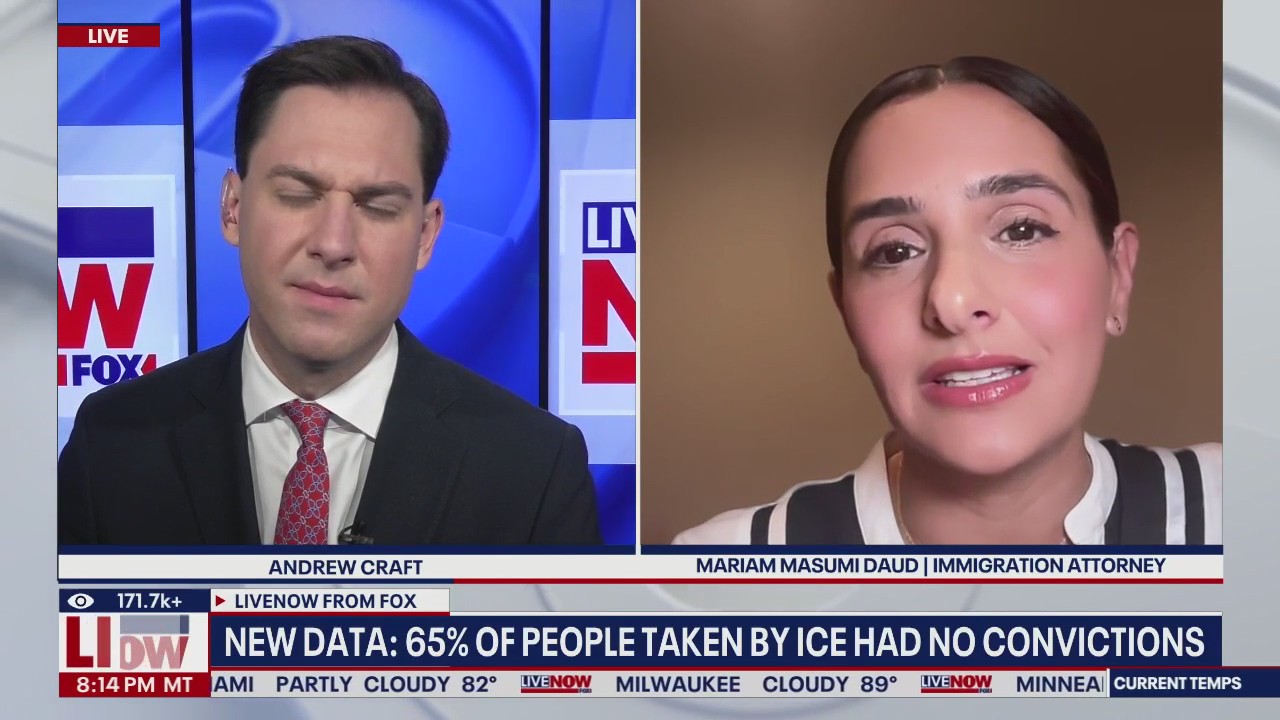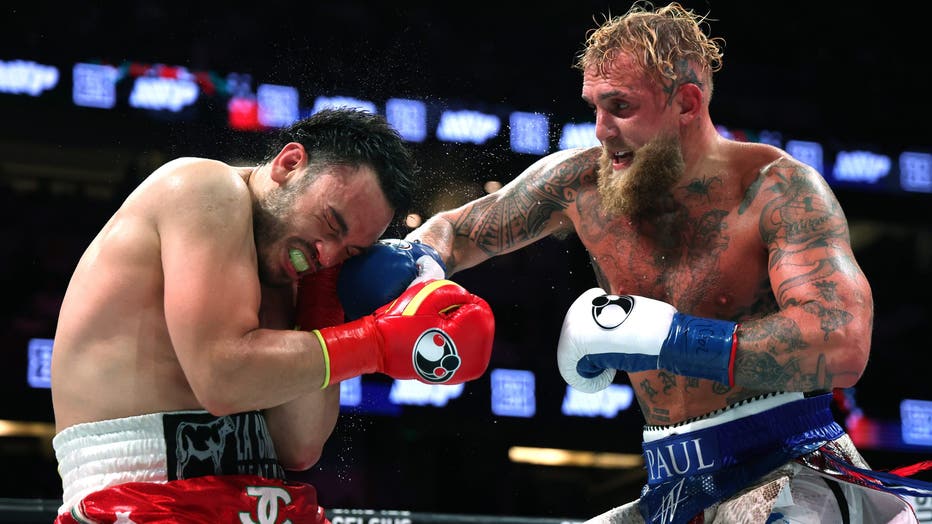Mexican boxer Julio César Chávez Jr. arrested by ICE, accused of cartel ties

SCOTUS ruling allows Trump third-country deportations
Immigration attorney Mariam Masumi Daud joins LiveNOW's Andrew Craft to discuss the June Supreme Court ruling that allows the Trump administration to move forward with third-country deportations.
Julio César Chávez Jr., the famed Mexican boxer who fought against Jake Paul Saturday in a highly publicized match, has been arrested by ICE.
The Department of Homeland Security announced his arrest in a news release Thursday and said he will be deported soon. He was arrested in Studio City, California.
Why was Julio César Chávez Jr. arrested?
What we know:
According to the federal government, Chávez is a Mexican citizen with an active arrest warrant in Mexico for his involvement in organized crime and trafficking firearms, ammunition and explosives. DHS accuses Chávez of having ties to the notorious Sinaloa Cartel in Mexico.

Jake Paul punches Julio Cesar Chavez Jr. to a unanimous decision win during a Cruiserweight fight at Honda Center on June 28, 2025 in Anaheim, California. (Photo by Harry How/Getty Images)
Timeline:
DHS says he entered the U.S. legally in August 2023 on a B2 tourist visa that expired in February 2024. Chávez reportedly filed for lawful permanent resident status in the U.S. on April 2, 2024, citing his marriage to a U.S. citizen. Officials say his spouse had a prior relationship with the late son of infamous cartel leader Joaquin "El Chapo" Guzman. They also say he made multiple fraudulent statements on his application for permanent residence.
RELATED: Trump video: He’ll 'take a look' at deporting Elon Musk
In December, U.S. Citizenship and Immigration Services deemed Chávez an "egregious public safety threat," according to DHS, but he was allowed to reenter the country on Jan. 4, 2025.
What we don't know:
It’s unclear why Chávez wasn’t deported and allowed to reenter the U.S. under the Biden administration.
Big picture view:
The high-profile arrest is part of a much larger push by the Trump administration to achieve the "single largest mass deportation program in history." His administration has vowed that mass deportations are coming, even if some of those notions are impractical.
RELATED: 'No Vigilantes Act': New California law would require immigration agents to identify themselves
Chávez’s criminal history
Local perspective:
According to the federal government, Chávez has a lengthy criminal history dating back to 2012. His charges in California include DUI, weapons trafficking and illegal possession of an assault weapon, DHS says.
Sinaloa Cartel a ‘foreign terrorist organization’
The backstory:
The Sinaloa Cartel is one of eight Latin American organized crime groups that President Donald Trump designated as a "foreign terrorist organization." His administration also allowed more than a dozen family members of Sinaloa Cartel leaders to enter the U.S. this year as part of a deal.
The Sinaloa Cartel, through various incarnations, is Mexico’s oldest criminal group – dating to the 1970s. It is a criminal conglomerate, an umbrella of sorts for various groups, based in the mountains of the state by the same name in northwest Mexico. It holds firm control of the western portion of the U.S.-Mexico border.
RELATED: Cartel family members entered US after deal with Trump administration, Mexico says
Sinaloa moves all sorts of drugs across continents using boats, planes, migrants and cross-border tunnels. It’s considered the most corrupting criminal organization in Mexico. A former security chief was convicted of helping them.

Drug cartels designated as foreign terrorist groups by U.S.
In February, the State Department designated several drug cartels as global terrorist organizations, the latest step in President Trump's immigration enforcement against alleged gang members in the U.S. Those groups include Tren de Aragua, the Sinaloa Cartel and others.
One of their most lucrative businesses in recent years has been the production of the synthetic opioid fentanyl, blamed for tens of thousands of overdose deaths each year in the U.S. Sinaloa imports the precursor chemicals from China, produces the drug and smuggles it across the border.
The arrest of Sinaloa’s eldest leader, Ismael "El Mayo" Zambada last year set off months of internal jockeying for power between Zambada loyalists and sons of the cartel’s best known former leader Joaquín "El Chapo" Guzmán, already serving a life sentence in the U.S.
The Source: This report includes information from the Department of Homeland Security, The Associated Press and previous LiveNow from FOX reporting.

